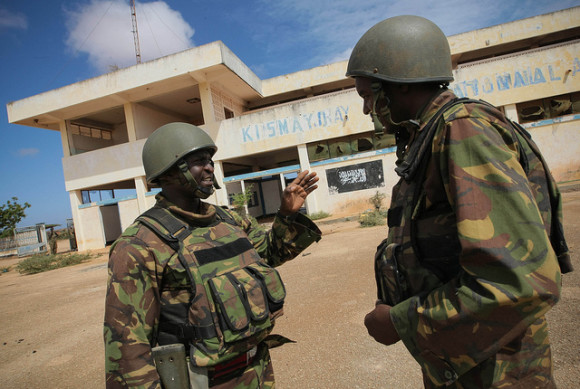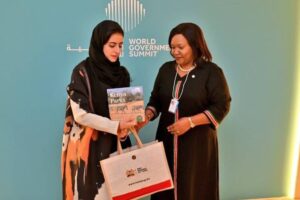Over the years, there has been speculation over the ongoing withdrawal of the Kenya Defense Forces (KDF) by President Uhuru Kenyatta from several parts of war-torn neighboring country Somalia but no definitive answer, however, KDF has now has established pillars that will guide its withdrawal from Somalia after eight years.
A lot of parties including Muslim clerics have been calling upon the government to rethink its strategy and withdraw the Forces and now Kenya and other countries contributing soldiers to the African Union Mission in Somalia (Amisom) are expected to exit by December 2021.
Plans for the Forces to leave the country have been outlined in a new book, War for Peace: Kenya’s Military in the African Mission in Somalia, 2011-2020 which was released on Friday by immediate former Chief of Defence Forces Samson Mwathethe.
The plan involves several pillars, the first being creating reforms in the Somali National Army, the second is freeing Jubaland of al-Shabaab, and in the process of creating a stable, peaceful, and prosperous environment.
“This will involve securing routes in Jubbaland accessible to and used by al-Shabaab, including areas in Jilib, the roads to Kenyan border points (Liboi, El-Wak, Mandera, Gherille and Boni forest) and Indian Ocean ports of Ras Kamboni, Kuday, Kismayu and Barawe,” the book states.
The third pillar will be securing the Kenya-Somalia border in a process that will involve “surveillance, trenches, roads and chain-link fences” and opening immigration offices at major entry points in Mandera, El-Wak, Gherille, Liboi, Kolbio, and Kiunga.
The fourth encompasses strengthening the operations of multi-agency command and control centers in Nairobi, Mombasa, Wajir, Moyale, Busia, Namanga, Lamu and Lokichoggio.
The fifth pillar will be partnering with Somalia and Ethiopia on common security concerns and agendas. It also involves enhancing collective security by involving neighbors in the Horn of Africa through the Inter-Governmental Authority for Development and the East African Community.
Kenya Muslims National Advisory Council (Kemnac) chairman Sheikh Juma Ngao had said Kenya should respect the Somali government and allow it to deal with its issues.
“The ongoing tension between the two governments is affecting our brothers in North-Eastern region. They (government) should rethink and bring our soldiers back home,” said Sheikh Ngao.
Kenya and Somalia have been having a tension-filled relationship with the Somali government recently calling on Kenya to “halt its ongoing violations” of Somalia’s sovereignty and encroachment in the border areas between the two countries.
Kenya and Somalia have been on the verge of a diplomatic maritime row over a disputed 62,000-square-mile (160,580-square-kilometer) oil and gas-rich area in the Indian Ocean in the shape of a triangle that both nations claim.























